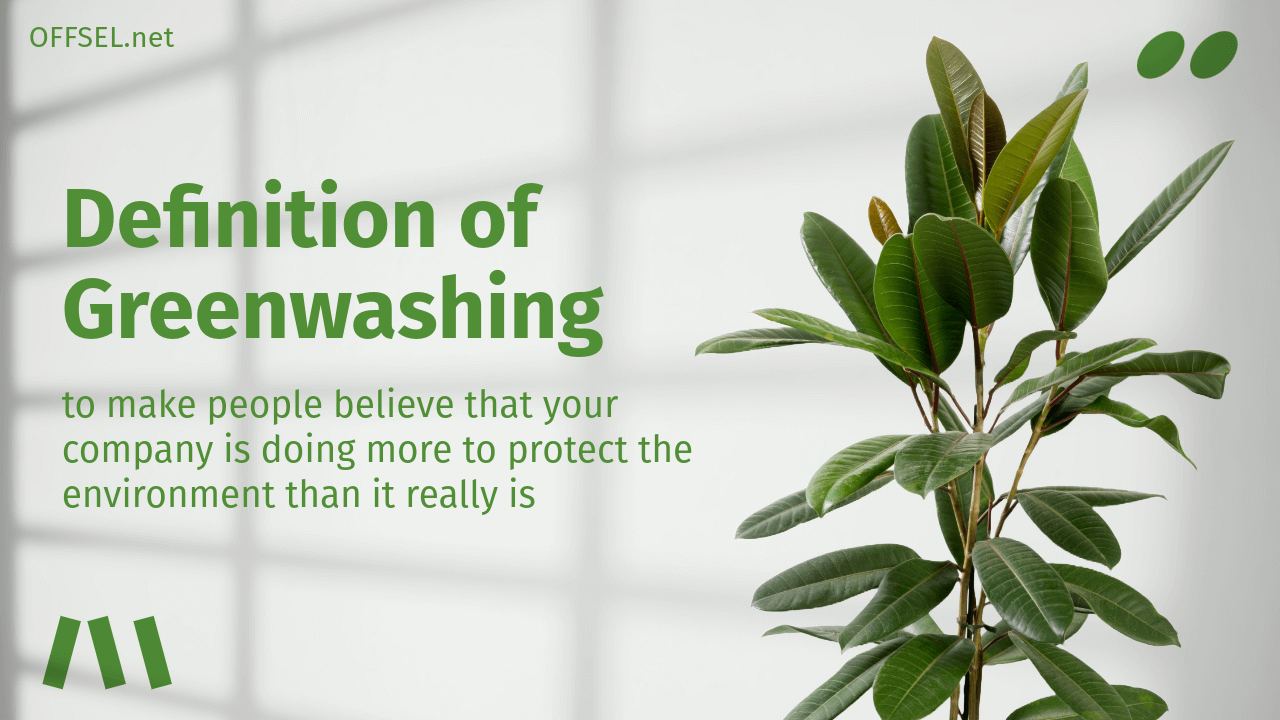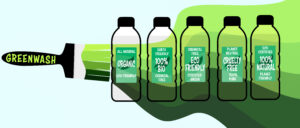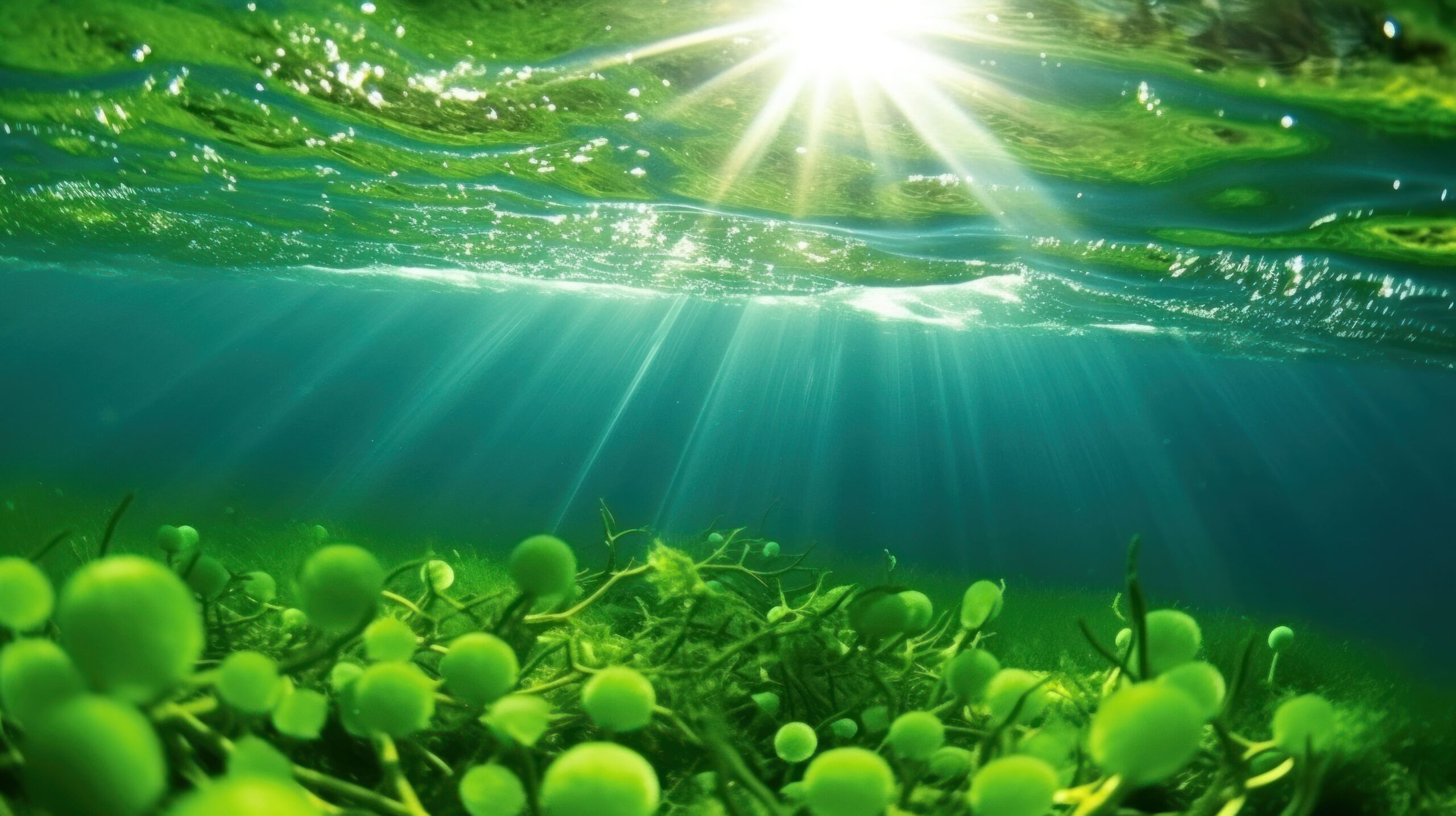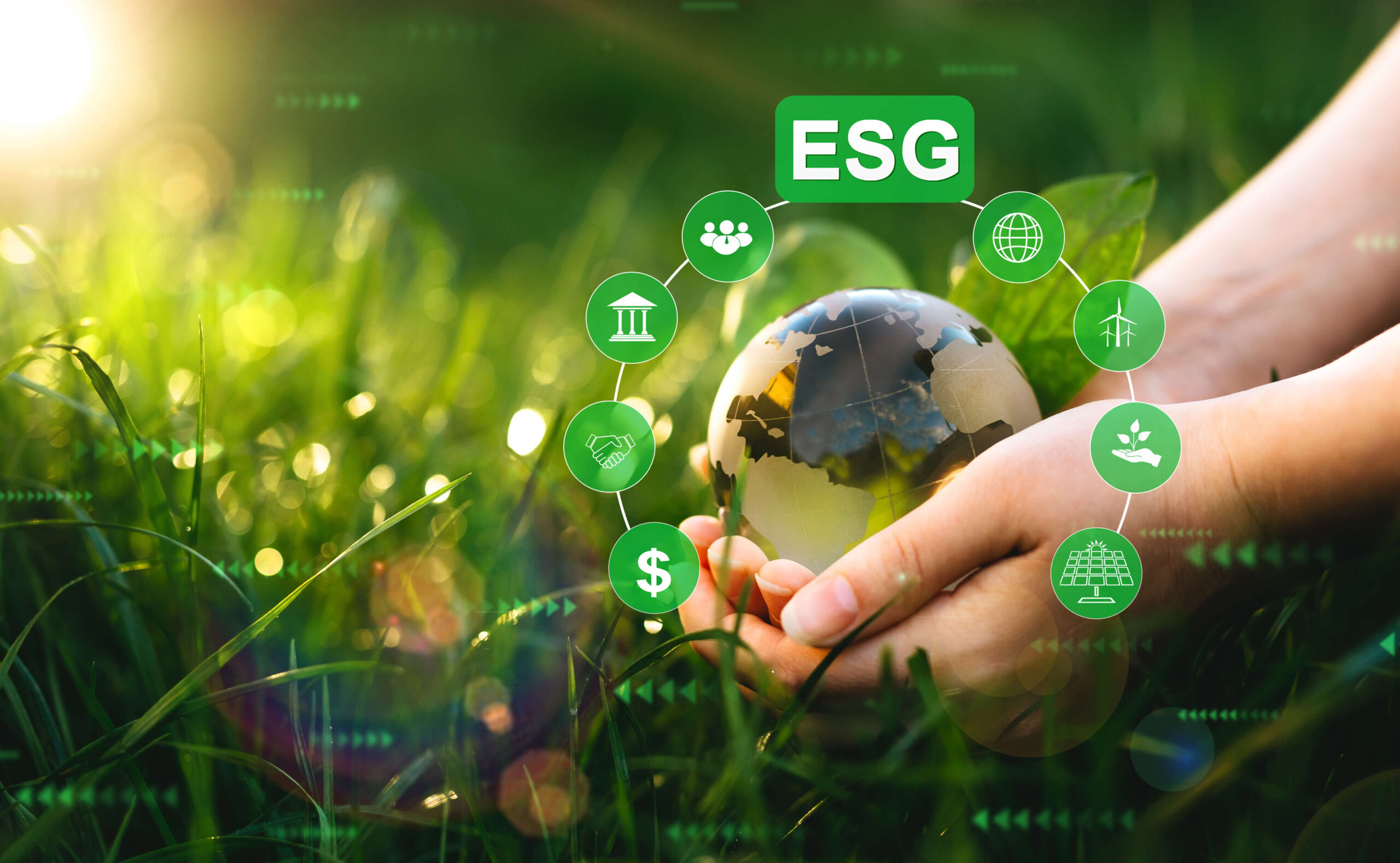What Is Greenwashing? Definition, Cases, and How to Spot
- Sustainability

Table of Contents
- 1 What does the “greenwashing” mean?
- 2 Examples of greenwashing
- 2.1 H&M’s Conscious Collection (2023)
- 2.2 BP’s “Beyond Petroleum” Campaign (2020)
- 2.3 Chevron’s “We Agree” Campaign (2010)
- 2.4 Starbucks and Plastic Straws (2018)
- 2.5 Volkswagen Emissions Scandal (2015)
- 2.6 Nestle and Plastic Bottles (2023)
- 2.7 McDonald’s Paper Straws (2019)
- 2.8 Fiji Water’s “Carbon Negative” Claim (2007)
- 3 Differences between green marketing and greenwashing
- 4 How to avoid greenwashing – from business side
- 5 How to spot greenwashing – from users’ side
What does the “greenwashing” mean?

Greenwash is a word that combines with “green”, which suggests an environmentally friendly or eco-friendly image, and “whitewash”, which means deception or superficiality. This refers to things that appear to be environmentally friendly, but are actually not, and that mislead environmentally conscious consumers.
Companies frequently exaggerate their strengths or advertise seemingly positive qualities that, in reality, have no beneficial impact on the environment or people’s health. This practice, often aimed at enhancing their brand image, can lead to accusations of greenwashing due to misleading advertising.
Key Takeaways:
- Misleading Environmental Claims: Greenwashing primarily involves making exaggerated or false claims about the environmental benefits of a product or service, misleading consumers into believing they are more eco-friendly than they actually are.
- Lack of Evidence and Transparency: Companies engaged in greenwashing often fail to provide substantial evidence or detailed information to back their environmental claims.
- Negative Impact on Consumer Trust and Sustainable Efforts: Greenwashing also undermines genuine sustainability efforts, creating skepticism around environmental initiatives and diverting attention from truly sustainable products and practices.
Examples of greenwashing
Below are notable examples of companies that have faced as green washing.
H&M’s Conscious Collection (2023)
 Cited from dezeen
Cited from dezeen
Fashion retailer H&M introduced its “Conscious Collection,” claiming to use more sustainable materials. However, the company faced criticism for the collection, with accusations that it was a case of greenwashing. Critics argued that despite these initiatives, the fast fashion business model inherently contributes to environmental problems due to high production volumes and rapid turnover.
BP’s “Beyond Petroleum” Campaign (2020)
British Petroleum (BP), one of the world’s largest oil and gas companies, launched a rebranding campaign in 2000, renaming itself “Beyond Petroleum.” This campaign aimed to focus on renewable energy. However, critics argued that the campaign was a greenwashing tactic, as the company’s primary focus remained on fossil fuels, and investments in renewable energy were relatively small in comparison to its overall business.
Chevron’s “We Agree” Campaign (2010)
Chevron, an American oil company, launched the “We Agree” campaign in 2010, positioning itself as a responsible energy provider focused on renewable sources and eco-friendly practices. However, the campaign was criticized for being misleading, as the company’s primary investment and business practices remained deeply rooted in fossil fuels.
Starbucks and Plastic Straws (2018)
 Cited from The Guardian
Cited from The Guardian
Starbucks, in response to environmental concerns, announced the elimination of plastic straws from its stores, introducing a new lid design for its drinks. While this move was applauded by some, others criticized it as greenwashing, pointing out that the new lids contained more plastic than the old lid-and-straw combination.
Volkswagen Emissions Scandal (2015)
Volkswagen, one of the world’s largest car manufacturers, faced a major scandal when it was revealed that they had installed devices in their diesel cars that could detect when they were being tested for emissions. These devices would then alter the performance accordingly to improve results.
This meant that while the cars appeared to meet environmental standards under test conditions, they were actually emitting up to 40 times the legally allowed limit of nitrogen oxides during everyday use. This incident not only led to billions in fines and a major recall but also significantly damaged Volkswagen’s reputation, especially since they had been promoting these vehicles as environmentally friendly.
Nestle and Plastic Bottles (2023)
Nestle, one of the world’s largest food and beverage companies, has faced criticism over its bottled water products. Despite promoting their bottles as recyclable, the reality of recycling plastic, especially at the global level, is complex and inefficient. Critics argue that Nestle’s promotion of bottled water as a green choice overlooks the significant environmental impact of plastic production and waste.
McDonald’s Paper Straws (2019)
In a move to reduce plastic waste, McDonald’s replaced plastic straws with paper ones in its UK and Ireland shops. However, it was later revealed that these paper straws were not recyclable and had to be disposed of with general waste. This incident raised questions about the actual environmental benefit of the switch and whether it was more a case of greenwashing than a meaningful step towards sustainability.
Fiji Water’s “Carbon Negative” Claim (2007)
Fiji Water, a brand of bottled water, claimed to be “carbon negative,” suggesting that they were removing more carbon from the atmosphere than they were emitting. However, this claim was criticized as misleading. The company’s carbon footprint included the emissions from bottling and shipping the water, which has a significant environmental impact due to Fiji’s remote location. The use of plastic bottles also contributed to environmental concerns. Critics argued that the carbon negative claim was an attempt to distract from the overall environmental impact of the product.
Differences between green marketing and greenwashing
Greenwashing aims to mislead consumers, whereas Green Marketing focuses on actually providing environmentally friendly products and services and gaining consumer trust. Greenwashing seeks short-term profits but can damage a company’s credibility in the long term. On the other hand, Green Marketing takes environmental protection seriously and aims to build long-term relationships with consumers.
- Intention: Green marketing aims to promote actual sustainable practices, while greenwashing is intended to deceive.
- Transparency: Green marketing involves openness about environmental initiatives, whereas greenwashing obscures or falsifies information.
- Impact: Green marketing contributes to environmental preservation, while greenwashing can harm both the environment and consumer trust.
How to avoid greenwashing – from business side
Dealing with greenwashing from a business perspective involves a multi-faceted approach that prioritizes genuine sustainability efforts over mere marketing.
Enhance transparency
Businesses should be transparent about their environmental impacts and sustainability practices. This includes openly sharing data on emissions, resource usage, and the environmental impacts of products or services. Transparency builds trust with consumers and stakeholders and helps avoid accusations of greenwashing.
Set realistic and achievable sustainability goals
Instead of making broad, vague, or overly ambitious claims about sustainability, companies should set realistic, measurable, and achievable environmental goals. These goals should be aligned with scientific standards and best practices in environmental stewardship.
Third-Party verification and certification
Seeking third-party verification or certification for environmental claims can lend credibility. Certifications like ISO 14001 (Environmental Management), LEED (for buildings), Energy Star, or Fair Trade can provide an objective assessment of a company’s environmental claims.
Integrate sustainability into core business practices
Sustainability should be integrated into every aspect of the business, from product design and manufacturing to distribution and marketing. This requires a shift from treating sustainability as a marketing tool to embedding it into the company’s culture and operations.
How to spot greenwashing – from users’ side
As a consumer or user, it’s important to be able to identify and avoid falling for greenwashing tactics.
Research and verify environmental claims thoroughly
Whenever you come across products or services that are marketed as ‘eco-friendly’, ‘sustainable’, or ‘green’, it’s essential to dig deeper into these claims. Investigate what specific environmental benefits are being claimed. For instance, if a product is labeled as made from recycled materials, look for specifics like the percentage of recycled content. Use independent resources such as environmental watchdog groups, consumer reports, or governmental environmental agencies for unbiased information. Verify the claims by checking for detailed information on the company’s website or independent reports. This helps in understanding if these claims are a small part of a larger, less sustainable operation or if they represent a genuine effort towards environmental responsibility.
Look for Third-Party certifications and labels
Trustworthy environmental certifications can be a reliable guide to making sustainable choices. Certifications like Energy Star, USDA Organic, Fair Trade, Rainforest Alliance, or Forest Stewardship Council (FSC) indicate that a product or service has met certain environmental or ethical standards. However, it’s important to understand what each label represents and the criteria behind them. Some certifications have more stringent requirements than others. Taking the time to understand these can provide confidence that the products you choose are indeed environmentally friendly according to established standards.
Stay informed
The field of sustainability is always evolving, with new standards, technologies, and practices continually emerging. Staying informed about these developments can help you make better choices and recognize greenwashing tactics. Follow reputable environmental news sources, join sustainability-focused forums, or participate in community groups focused on environmental issues. This ongoing education will refine your ability to discern genuine sustainable practices from mere marketing.
You can also use Social Network Services like X, Instagram, or Facebook, and get information frequently.
CONTACT US
Please feel free to contact us at anytime.
We will get back to you as soon as we
can!
Editor
OFFSEL Owned by Erevista Inc, OFFSEL is specializes in Environmental issues, especially in carbon neutrality. We primarily provide the latest information on environmental energy.


